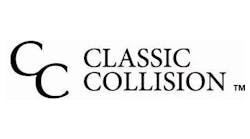Throughout my career I have been in countless body shops. Some of the shops I was affiliated with either by owning them with my dad. In others,I was an employee. Other shops I may have visited to see a new friend, make a new friend, consider an acquisition, or I was there to help someone with a specific task. When I visit shops, I almost mindlessly group them into one of three categories: 1) Good-run shop 2) Average-run shop 3) Poorly-run shop.
The thing that moves these shops up and down in the categories comes down to one thing. That one differentiator is the most important and should be worked on constantly: process.
Many shops fail to ever implement a process, and many of those that implement processes do not follow through and do them diligently. Even worse, some shops do not update them as time moves on. Processes cannot be followed when it's convenient or when it's easy. Processes must be followed all the time. I love process because there is no gray area. It's either black or white.
Shops that fail to implement process are often chasing themselves. Always working on something that should already be done. Running around searching for lost parts or missing parts. Buffing their paint work after its been reassembled and the manager notices a sag around the handle. Redoing body work because the panel is wavy after reassembling the vehicle. Returning phone calls because the phone is ringing all day. All these things should be done proactively instead of reacting.
Processes should be put into place to make sure things are done at the correct time and in the correct order. If a parts ordering, receiving, and distributing process is put into place then chasing lost and missing parts rarely happens. Establishing a cool-down bay in the paint shop where the vehicle gets QC'ed between steps eliminates the need to buff cars after reassembly, slinging compound everywhere, and risking having to disassemble again if the buffed area doesn’t come out to satisfaction. In-process quality control checks in the body department stops wavy body work from being painted. A simple process for when and how you update customers prevents customers from having to call in for updates. Most people in our business do not have a minute to spare and are working extremely hard solving these problems.
Think about how much more we could get done if we didn’t have do deal with all these issues.
Not updating your processes as time goes on can be just as dangerous as not having them. Don’t get me wrong, even a bad process can be better than no process. But, sticking with a process and not re-evaluating and tweaking as time moves on can be a productivity killer. An easy example of processes that could be revisited are the ones revolving around the customer experience. People are changing the way they communicate with each other, but most shops still rely on phone calls to update their customers. Many people would prefer a text message or an email. Not only is it what the customer prefers, but it is easier and faster on the shop in most cases. Emails and text messages can be sent straight out of your management system or by using other programs like Podium. The check-in process is a common one that most shops have, but many times it is still done on paper and with a digital camera. What if the documents the customer signed were electronic and got automatically recorded to the file? Customers could get the files sent to them or go on a website to sign them without having to come in. That could save days on a tow-in vehicle. Check in photos could be done with an iPhone and could get transferred to the file instantaneously. That is so much easier than using a digital camera.
It is very easy to become frustrated in a shop. It can be especially easy to become frustrated as an owner or manager. But, a lot of this frustration is caused by our lack of process and training. If we don’t have a good process, and if we don’t train our team appropriately, then this frustration really falls on us.
I know this to be true first-hand, as we are opening our newest location right now. Our files are a little sloppy, our parts department is lacking, the shop could be picked up more, communication is happening but not the appropriate way, and our in-process QC has proven inconsistent. We have an extremely talented staff, and out of all honesty it is probably the best one we have ever assembled on our first try. When things are not going right it is frustrating, but when I start to feel that way, I take a step back and remember the process is new and in its infancy. We still need to continue training the team and molding our processes. It could be easy to blame someone else, but, it falls squarely on my shoulders.
Process is the most important thing we can work on in our shops. It makes everything easier to do, highlights mistakes instead of wondering what went wrong, provides a level of consistency to everything that we do, and overall makes the shop work smarter and not harder. Invite your team into the process, highlight what issues will get corrected with a process, take their input, and get to work on designing. If process is truly embraced, and we throw out “that’s how we’ve always done it”, you’ll never look back.


